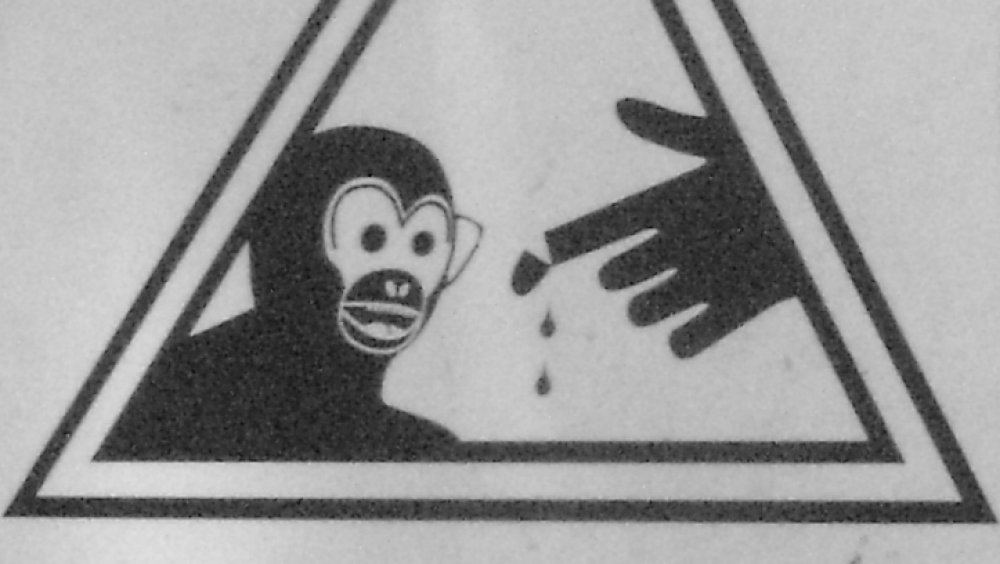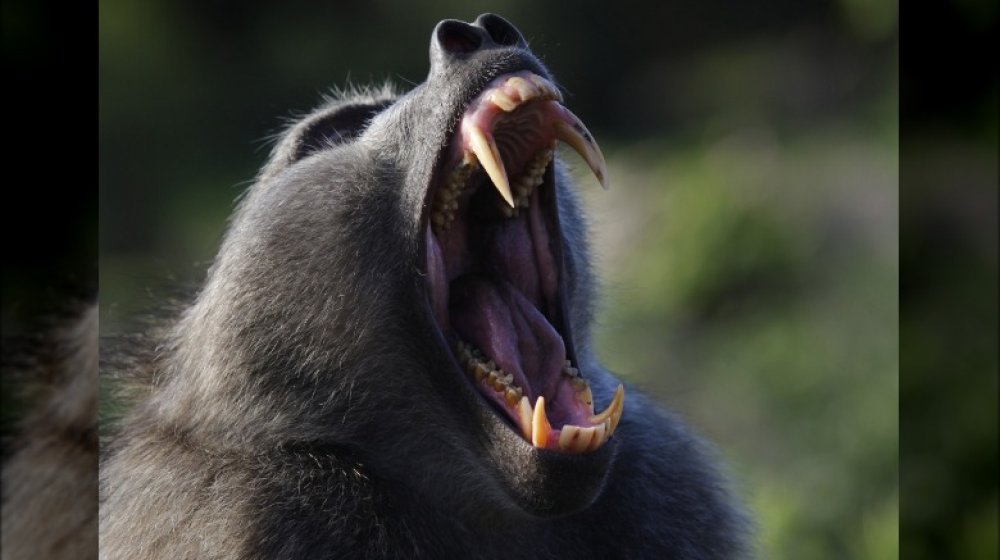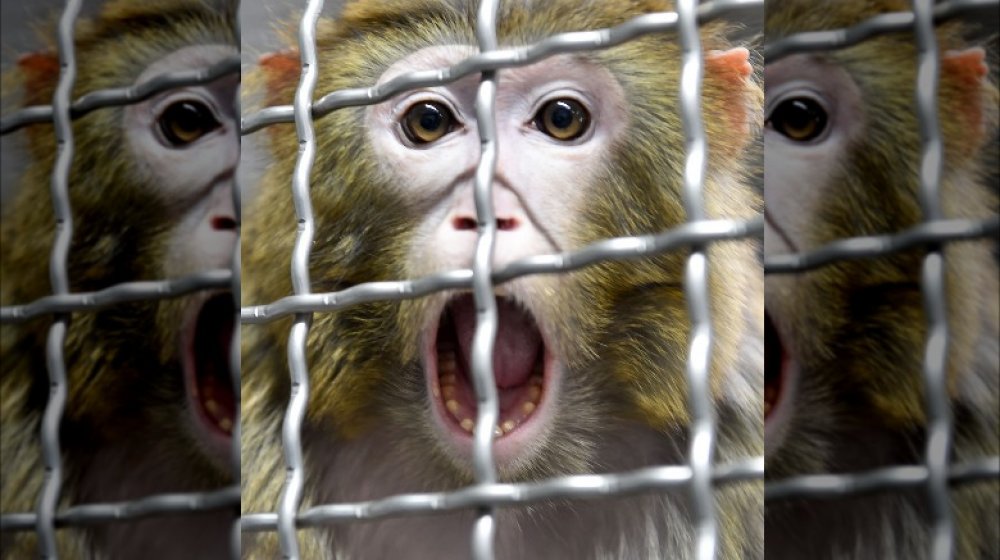The Most Dangerous Monkey In The World
The above photo was taken at Germany's Leipzig Zoo. Despite the overwhelming German-ness of the sign, even a non-German can probably tell it's asking visitors not to bleed on the monkeys. The best way not to bleed on a monkey is to keep a safe distance, so it doesn't bite you. But many humans mistakenly think they can tell how pet-able a monkey is based on its adorable facial expressions. They can't. In fact, according to NPR, UK researchers determined that humans often interpret a monkey's expression as conveying the opposite of what it's actually feeling. Perhaps that's why the World Health Organization found that monkey bites are the second most common animal bite injuries to affect travelers. But not every monkey you see will do the same amount of damage. What's the most dangerous monkey?
Before Caesar, there was Fred
Although monkeys aren't technically apes, a troop of marauding baboons in South Africa undoubtedly gave humans nightmares about a Planet of the Apes-style uprising. As NBC describes, in 2009, 29 baboons laid siege to four vehicles, stealing food as panicked passengers screamed and presumably asked those darned dirty non-apes to keep their stinking paws off the sandwiches. Their fierce leader was dubbed Fred, which sounds about as intimidating as a pirate named Melvin. But Fred didn't need a fancy name to instill fear.
Per PRI, Veterinarian Mark Evans the blandly named baboon could 'bite like a lion...run like a cheetah...and rule his troop like a despotic emperor." Fred knew how to open car doors, unzip bags, and break into houses. And he was tough as Kevlar. X-Rays revealed that Fred had been shot more than 50 times over the course of his exploits. Though he seemed impervious to bullets, a different kind of shot ended him. Fred the baboon was captured and killed by lethal injection.
Beware the herpes monkeys
Not every monkey you see will mug you. Some pose an invisible but nonetheless deadly threat. Time reports that macaques can spread herpes B, which causes brain damage and death in humans. Macaques, however, show no symptoms. There have been 50 known cases of herpes B in humans between 1932 and January 2018, and 21 of those people died. As of this writing, the only known instances of monkey-to-human herpes transmission involved captive macaques. According to the Chicago Tribune, in 1997, a primate researcher at Emory University died after a macaque either spat on her or flung fluid in her eye, spreading herpes B. If you live in Florida, you may have reason to worry, as many of the macaques at the state park carry the virus.


